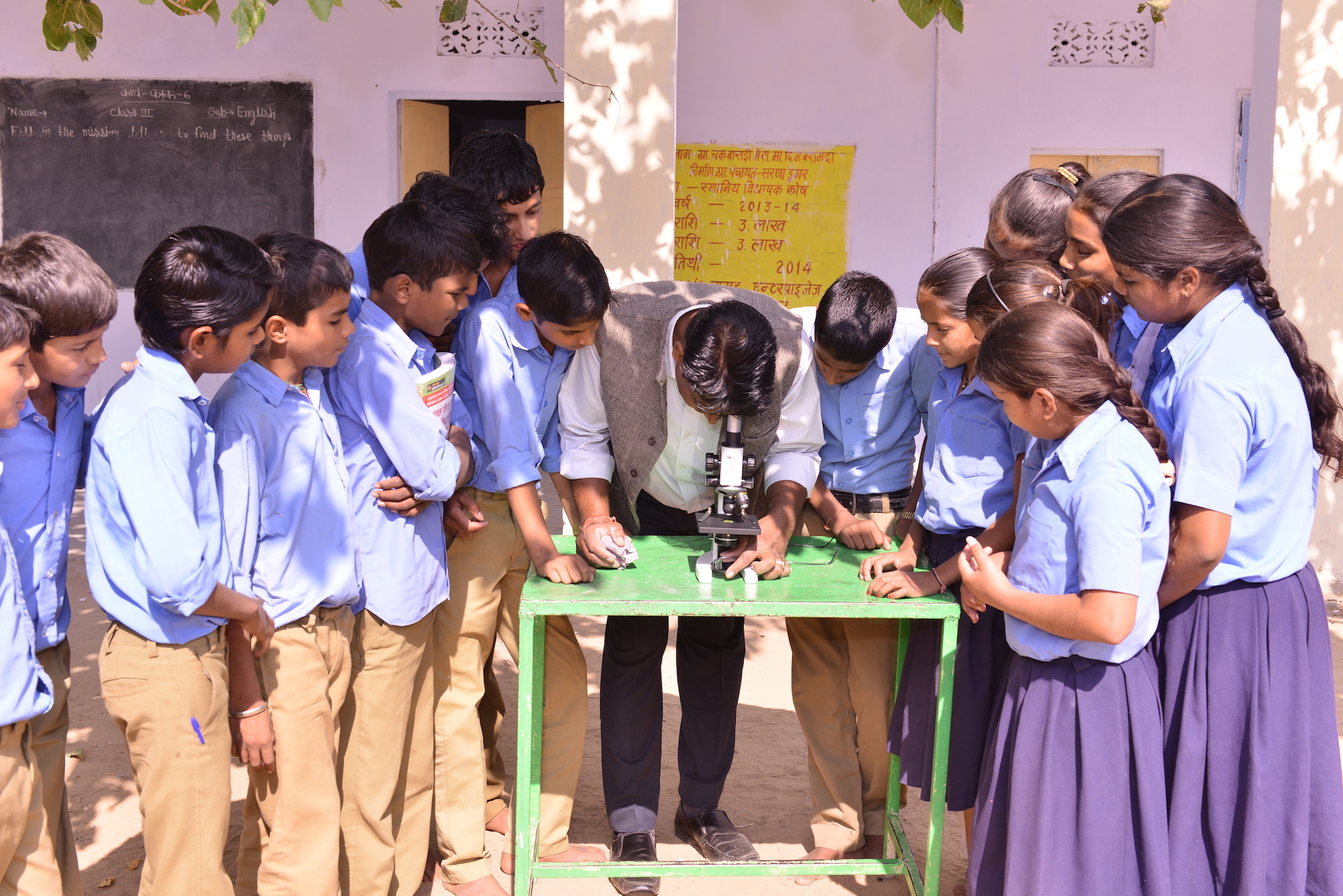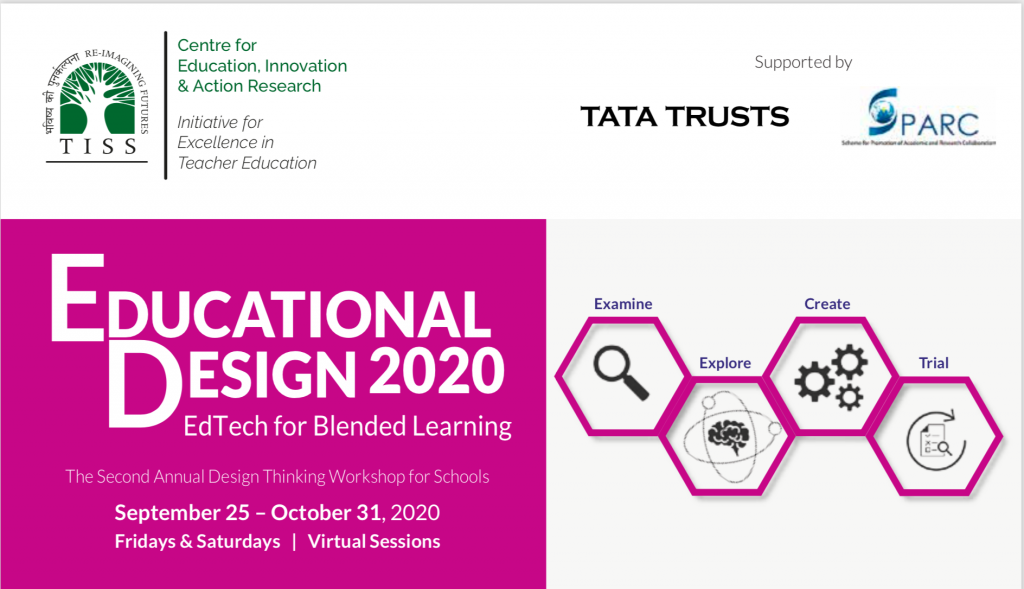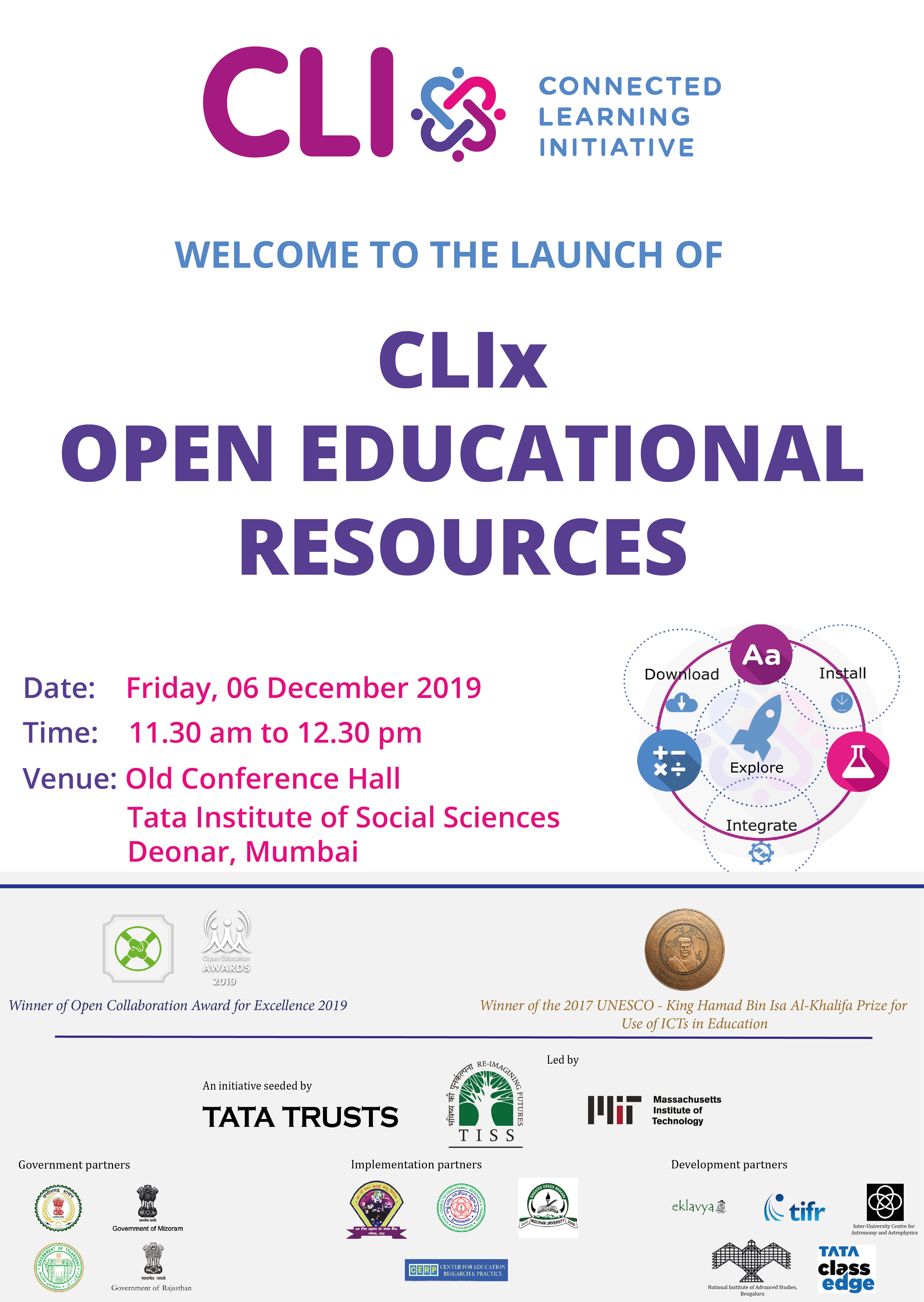Research
Research is an important and integral component of CLIx. The research team at CLIx is committed to conducting high quality studies in the area of impact evaluation, design-based research and specific thematic case studies. It consists of a multidisciplinary team of researchers with a rich experience of studying education in developing and developed countries, as well as of playing a key role in various policy-level processes. The team members, primarily located in TISS and MIT, work closely with the various field teams and domain teams to facilitate the execution of specific studies, organisation of research seminars and publication of research work.
Agenda
The CLIx research agenda seeks to fulfill multiple functions:
- Guide the overall project by means of a study of available literature and by providing the necessary theoretical/conceptual frameworks
- Study significant facets of the intervention in school pedagogy, including the impact
- Contribute to existing literature and scholarship on the subject
The broad research questions are about:
- implementation and scalability
- teacher professional development and classroom processes
- student agency and learning
- partnerships and collaboration
The focus is on asking questions about what works in the field, what kind of technological designs work most effectively in under-resourced schools, how classroom processes transform and evolve as technology-enabled teaching-learning practices are introduced in classrooms, what impact the specific nature of learning through CLIx (technology-enabled, collaborative, connected, concept-based, authentic, blended learning) has on student learning outcomes, how the concerns of various stakeholders evolve over a period of time and about how innovations get adopted and diffused at a systemic level.
These research questions are being answered through a set of studies including design-based research, impact evaluations, process documentation, case studies, policy research etc. Publication and dissemination of research findings is an important part of the research plan. The research activities are planned around two arms: knowledge generation and knowledge sharing.
Research Studies
Impact Evaluation
The Theory of Change that guides the impact evaluation is as follows:
- The quality of teaching and learning will improve/enhance with augmented opportunities for collaborative and connected learning, concept-based learning, authentic and blended learning, real life/ relevant learning;
- The technology enabled learning opportunities will lead to the development of new teaching practices and ‘re-skilling’ the teachers,
- Professional development of teachers will take place with their participation in TPCK modelled training directly offered to teachers, ongoing resource support and participation in teachers’ networked communities of practice,
- Adoption of innovation and its sustainability will depend on the building of the local ecosystem, provision of adequate infrastructure, a partnership with key stakeholders and ownership of the intervention by the government and local ecosystem,
- Systems at the school level introduced through the intervention such as changed time-table, use of science lab, space for hands-on and collaborative learning will improve the learning environment at school
The baseline study has been conducted using 11 digitised tools and covers over 200 schools, 8000 students, 500 teachers, and 450 classroom observations.
Innovation Diffusion Process Documentation
The purpose of the Innovation Diffusion Process Documentation (IDPD) study is to obtain perspectives from multiple stakeholders regarding their perceptions of the purpose, affordances, constraints, implementation and potential impact of the Connected Learning Initiative (CLIx). Data is being collected at predefined intervals throughout the project to examine how these views shift as the intervention progresses and how that helps diffusion of innovation at three levels – the macro level (consisting of the CLIx core community), the meso level (state officials and field implementing partners) and micro level (school principals, teachers, students and parents). The study intends to document and analyse how an innovative intervention unfolds in the field and how the key concerns, roles, expectations and ideas of innovation evolve during the course of the intervention lifespan.
Case studies
A select number of case studies inquiring into the qualitative dimensions of intervention and change are being undertaken. These focus on questions of inclusiveness, student agency, school transformation, models of implementation among others. The case studies intend to showcase the processes and uses mixed data collected from the schools covered by CLIx.
The research team supports Design-Based Research which is primarily undertaken by curriculum teams and instructional designers and Implementation Monitoring Research which is anchored by the Implementation team. The principle that guides our research cycle is that all data should help contribute to knowledge, practice and policy. All data generated through CLIx is anonymised and subject to open data policy.
Research News

16th GLOBELICS International Conference on Innovation and “Development University” concept (24.10.2018-26.10.2018)
October 31, 2018 / 0 Comments

CLIx Open Day: Learning with Games (07.08.2018)
September 26, 2018 / 0 Comments

From Data Glut to Dissemination: How to Visualise and Communicate Data ( 21.08.2018-25.08.2018)
September 26, 2018 / 0 Comments

The 360-Degree TPD Review – Part 2 (21.02.18 – 23.02.18)
April 4, 2018 / 0 Comments





Comments are closed.